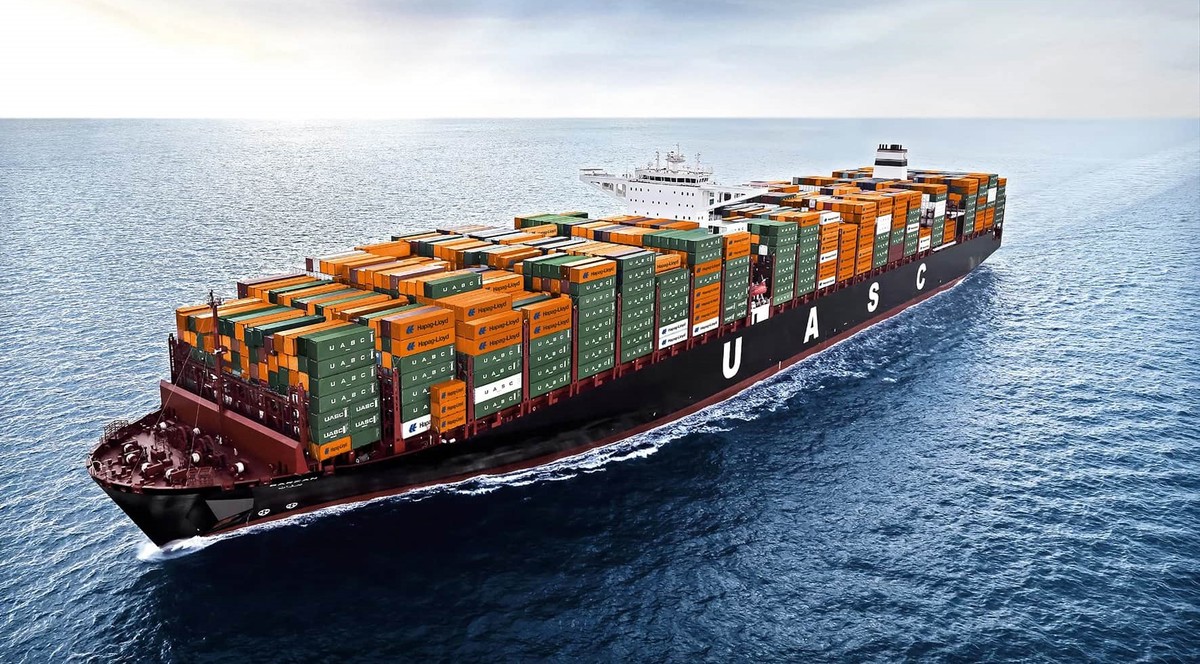Another logistics company opts for book-and-claim system for CO2 reduction
Danish logistics provider Scan Global Logistics (SGL) will use cargo shipping company Hapag-Lloyd’s book-and-claim system to reduce CO2 emissions from its operations.
 PHOTO: Hapag Lloyd's container ship. Hapag Lloyd
PHOTO: Hapag Lloyd's container ship. Hapag Lloyd
The system will allow SGL to book shipping services with Hapag-Lloyd and then claim emissions reductions through the use of used cooking oil-based (UCOME) biofuel across Hapag-Lloyd's fleet.
Hapag-Lloyd will bunker some of its vessels with biofuel blends. It will then allocate carbon credits equivalent to the reduction of greenhouse gas (GHG) emissions from the use of biofuel on these vessels to SGL using a book-and-claim mechanism.
“In line with the industry standard, we replace up to 30% of conventional marine fuel oil bunkered on a vessel with biofuel,” Hapag-Lloyd explains.
CO2 inset-based approach
Book-and-claim is a supply chain model that allows cargo owners to purchase emission reduction credits from other shipowners that have already invested in low- and zero-emission fuels. The carbon savings are then documented in the buyers’ emissions dashboard and audited annually by a third party.
It helps buyers balance out emissions from their ships without investing in low- and zero-emission fuel infrastructure, technologies or vessels.
Book-and-Claim means that “Hapag-Lloyd attributes the emissions avoidance to all its ocean leg services regardless of the vessel and route used. With this approach, Hapag-Lloyd guarantees that emissions in its fleet are avoided without limiting the availability of Ship Green [service] to customers, e.g., through the local availability of alternative fuels,” it explains.
In simpler terms, this means that Hapag-Lloyd’s customers can buy carbon credits even if their shipments are made on fossil-fuelled vessels due to the mechanism as long as they pay the premium for the service.
Hapag-Lloyd has not specified how many vessels will be powered by biofuel blends under this program. However, the company had previously reported in March that it bunkered 213,000 mt of biofuel blends across 45 out of its 266 vessels in 2023.
Alternative route to claim CO2 savings
The past couple of years have seen an increasing number of logistics companies and cargo owners use carbon insetting to claim CO2 reductions.
Zero Emission Maritime Buyers Alliance (ZEMBA) has joined Hapag-Lloyd's book-and-claim system to claim up to 90% CO2 emission reduction compared to conventional fuels using biomethane onboard vessels.
Logistics company DB Schenker claimed a reduction of around 3,000 mt of carbon dioxide equivalent (CO2e) emissions last year, for the use of 1,000 mt of biofuel on Hapag-Lloyd’s vessels.
Hellman Logistics joined a carbon insetting programme with South Korean container line HMM and Nestle has been using Maersk's biofuel credits to reduce its seaborne emissions.
By Konica Bhatt
Please get in touch with comments or additional info to news@engine.online






